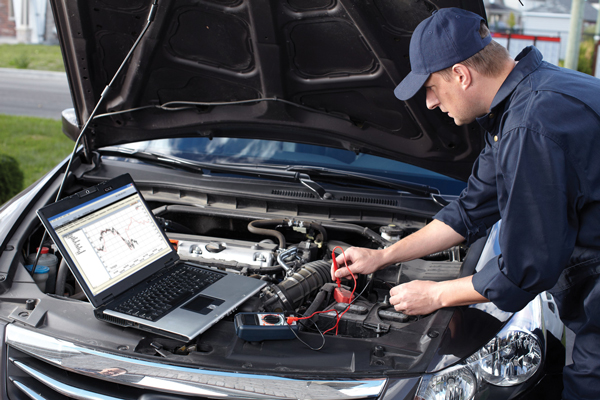BY DAVID HARTSON
 Everyone in our industry has had a bad mechanic experience. Whether they failed to fix your vehicle or hit you with a large bill, it’s difficult to shake the feeling like you got a raw deal, and you certainly can’t afford to be bleeding money on account of subpar mechanics.
Everyone in our industry has had a bad mechanic experience. Whether they failed to fix your vehicle or hit you with a large bill, it’s difficult to shake the feeling like you got a raw deal, and you certainly can’t afford to be bleeding money on account of subpar mechanics.
There are two ways of dealing with vehicle repair: Either you hire a mechanic for your fleet or look for an outside shop you can trust. There are pros and cons to both, and you need to determine what best fits your business model and needs, but each choice comes with a similar approach—and caveats.
First and foremost, you need someone reliable and honest to work on your fleet, and you need to be aware that there are ultimately two types of mechanics: a parts-changer and a technician. A parts-changer will not necessarily diagnose the cause of your vehicle’s problem, but simply insist that he needs to replace a part. The problem is that he could wind up replacing everything in a system to fix the problem—which could still exist after the work is done. There is no guarantee that his is a long-term fix when he is swapping out old parts for new ones instead of considering how all those components work together.
The technician, on the other hand, is an expert on what makes your car run. By examining how your vehicle’s systems interact, and then comparing their performance to how they’d run in perfect condition, he’s diagnosing your vehicle’s issues, not just identifying the problematic parts. A technician might cost you more when it comes to labor cost, but with proper tools and knowledge, he will not only find the root of the problem but also fix it correctly the first time. While you don’t want to be paying for parts you don’t need, a good mechanic will let you know of potential problems as well as the systems or parts you’ll need to be replacing soon. He’ll also understand how each system works together to keep your vehicles at optimal performance. For example, a mechanic who truly understands your fleet will most likely recommend new ceramic pads and rotors with every routine tune-up, knowing that your vehicles work harder than the average commuter’s car or family sedan and that doing the repair correctly the first time keeps the fleet moving—and money coming into your pocket.
Beyond identifying the kind of mechanic you really need, there are a few additional things to consider when it comes to selecting the right mechanic to trust with your metal:
• Find a good communicator. You need someone who can explain what needs to be done and how much it will cost. He also must be able to present issues with plain logic. If you don’t understand what this mechanic is saying, then how do you know if this person understands what he is doing or if you’re just shelling out money for needless work?
• Look at the shop: If it’s filthy, keep in mind that’s where the work will be done—you could spend your time cleaning up his mess! And while everyone has an organizational system that work best for him, a good rule of thumb is that a messy toolkit is a sign of a messy job.
• Someone who’s willing and able to help you with managing your fleet maintenance is a plus, which shows that he likely understands the rigorous usage that transportation fleets experience and how often you should be replacing and repairing parts and maintaining your vehicles.
We all know that time is money, and that every minute and day you are not able to use a vehicle from your fleet is a loss from your bottom line. Managing a fleet and its proper upkeep are just as important as hiring the right chauffeur and team: Don’t allow yourself to compromise on safety. [CD1016]
David Hartson is a longtime industry consultant, partner at non-emergency medical transportation company procare solutions, and the West Coast editor for Chauffeur Driven. He can be reached at david@chauffeurdriven.com.

